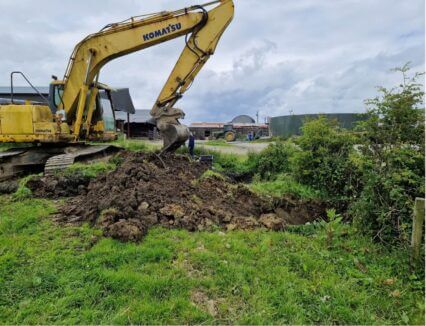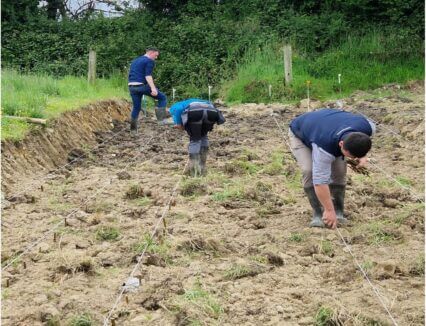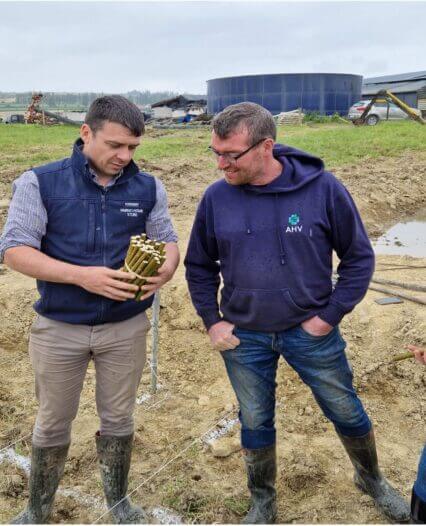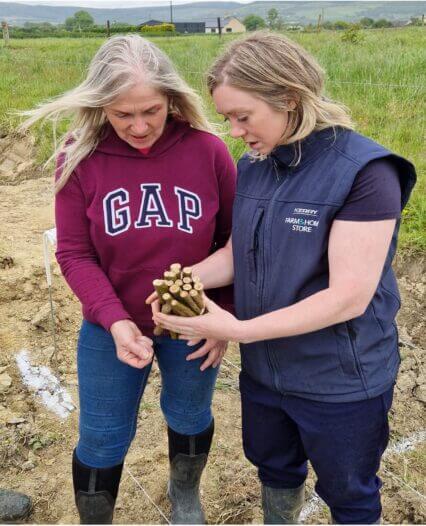Opportunity: Protecting Water Resources for Future Generations
Mike and Bernie O’Sullivan, dairy farmers in Castleisland, Co. Kerry, have long been committed to ensuring their farm operates sustainably. With water pollution and nutrient runoff increasingly threatening local watercourses, the O’Sullivans recognized the need to take proactive steps to safeguard their land for future generations. This challenge became an opportunity when they joined the Farming for Water EIP pilot project, an initiative involving 50 local farmers, aimed at improving water management through sustainable farming practices. As Mike noted, “I see this as a huge opportunity to put our property in order for our children coming along after us.”
Involvement in the government’s measures to improve water quality funded through Farming for Water EIP provided the O’Sullivans with the necessary resources and expertise to address water quality issues on their farm. Additionally, the support provided by Kerry Agribusiness was critical to initiating this project, as Mike explained, “Protecting water is very important, this is a great project and the key to it is that the funding is right.”
Approach: Implementing Sustainable Water Management Strategies
The project started with the development of a Rainwater Management Plan tailored to the specific needs of the O’Sullivan farm. Kerry Agribusiness sustainability advisors worked closely with the family to introduce several measures designed to manage runoff and prevent nutrient leaching into nearby water sources. The centrepiece of this plan was the installation of a willow bed, a natural filtration system that helps to slow down water runoff, allowing sediment to settle and nutrients to be absorbed by the willow plants.
The construction of the willow bed took just two days and involved planting 1,050 willow stems over a 100 x 4-metre area. This simple yet effective system prevents pollutants from entering local watercourses. As Terry O’Mahony, one of the project’s sustainability advisors, noted, “We now have this example of a willow bed to showcase, and we have the expertise locally to demonstrate how the work should be done.”
These fast-growing plants, harvested every two years, provide an efficient and cost-effective solution to water management. The willow bed is fenced off from livestock to protect the plants, although they pose no harm to the animals.





